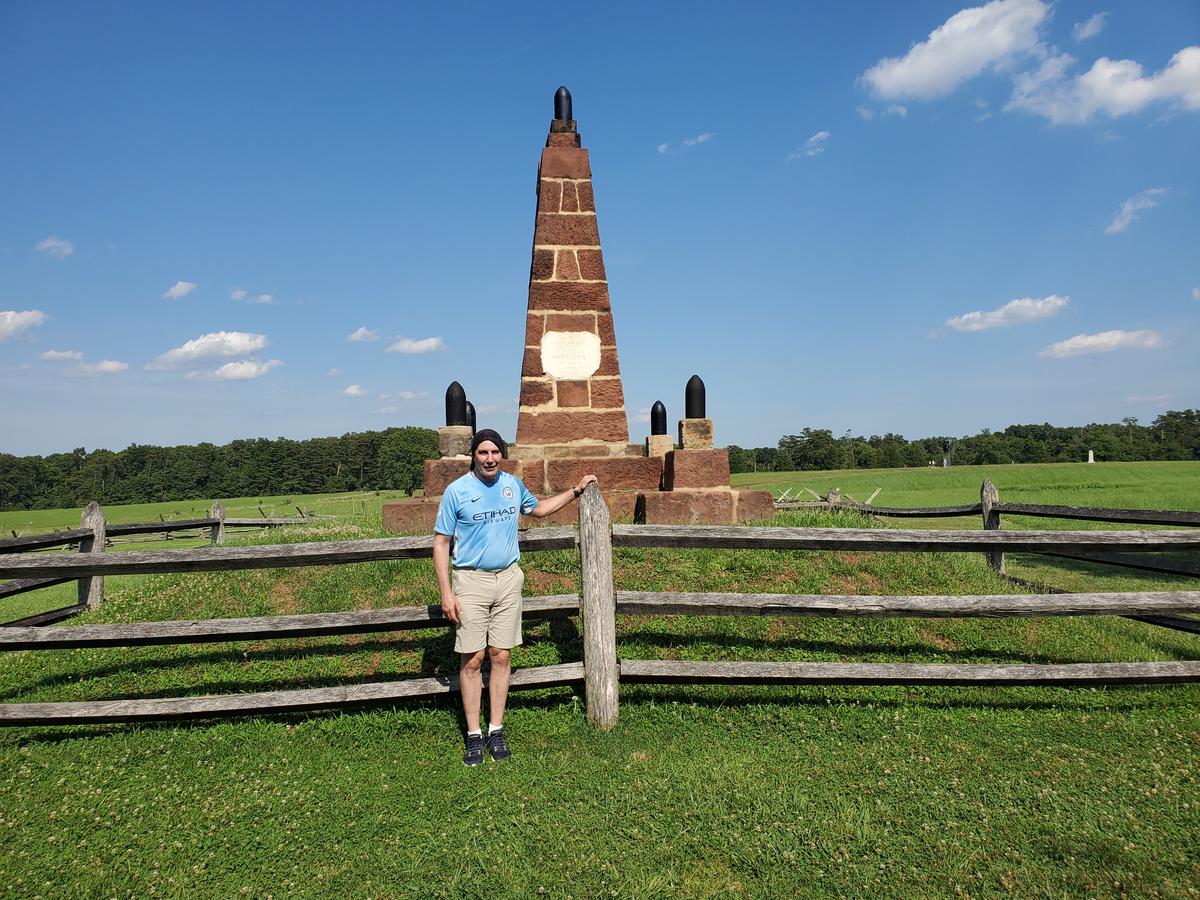I try to go every summer to historic sites in America and to read one or two biographies of important Americans. In the past two weeks, I have read the biography of Frederick Douglass, “Prophet of Freedom,” by professor David Blight; read Doris Kearns Goodwin’s “Leadership: In Turbulent Times”; visited the first battlefield of the Civil War in Manassas, Va.; and went to Federal Hall in New York City, where George Washington was inaugurated as the first president of the United States. Here are a few observations:
- The Most Important Monument—Two months after the surrender of the Confederates at Appomattox, Va., Union soldiers went back to Manassas to commemorate a very simple pile of bricks in the shape of an obelisk. The sign reads, “To the Patriots who fell at Bull Run.” Note that it honors neither side. It has no images of generals or politicians. It is for those who died in the struggle. It does not celebrate war; it recognizes commitment to an ideal of patriotism.
- The Importance of Narrative—The autobiography of Frederick Douglass became a best-seller in 1845. It was the first book of note by an African-American. It described his two decades as a slave, including a fistfight with his overseer Mr. Covey; the constant hunger and physical abuse; then his dramatic escape to freedom. Here is a quick sample of his writing style, as he travelled for the first time outside of the U.S. to the UK and Ireland: “I breathe and lo, the chattel becomes a man. I gaze around in vain for one who will question my equal humanity or claim me as his slave…I am seated beside white people, I enter the same door and I dine at the same table…when I go to church, I am met by no upturned nose and scornful lip.”
- The Humility of America—George Washington, as he was inaugurated in Federal Hall overlooking Wall Street (just across the street from the New York Stock Exchange today), wore plain American broadcloth as he spoke to the assembled crowd. He made clear that “no local prejudices or attachments, no separate views nor party animosities will misdirect the comprehensive and equal eye which must watch over this great assemblage of communities and interests.”
- Continuous Self-Improvement—Goodwin writes of Lincoln, “To fulfill what he believed to be his destiny, a different kind of sustained effort and discipline was required, a willingness to confront weakness and imperfection, reflect upon failure…with a peculiar manner of figuring things out, a form of mental wrestling…to break down the complex into simplest elements.”
- The Stubborn Persistence of Bigotry—Douglass endured many uncomfortable train rides and ship passages where he was forced to sit in the third-class section. Even after the Civil War, as he prepared to speak in Springfield, Mo., he was asked to go into the kitchen to get his breakfast. It was especially galling to watch the gains of blacks during Reconstruction get steadily eroded by Supreme Court decisions that gave precedence to local sovereignty on voting rights and equal treatment.
I am prompted to write this blog by the events of the past week that have exposed a fault line in this country. We need to honor the right to dissent, even if we disagree with the speaker on tone or substance. We should be secure enough to tolerate, instead of whipping up fears. I disagree with U.S. Rep. Ilhan Omar on many issues, but I celebrate her presence in the U.S. Congress as a Somali-American and a Muslim. I want a culture that respects the best and the brightest, the decent and determined. We can do better.
Richard Edelman is president and CEO.




